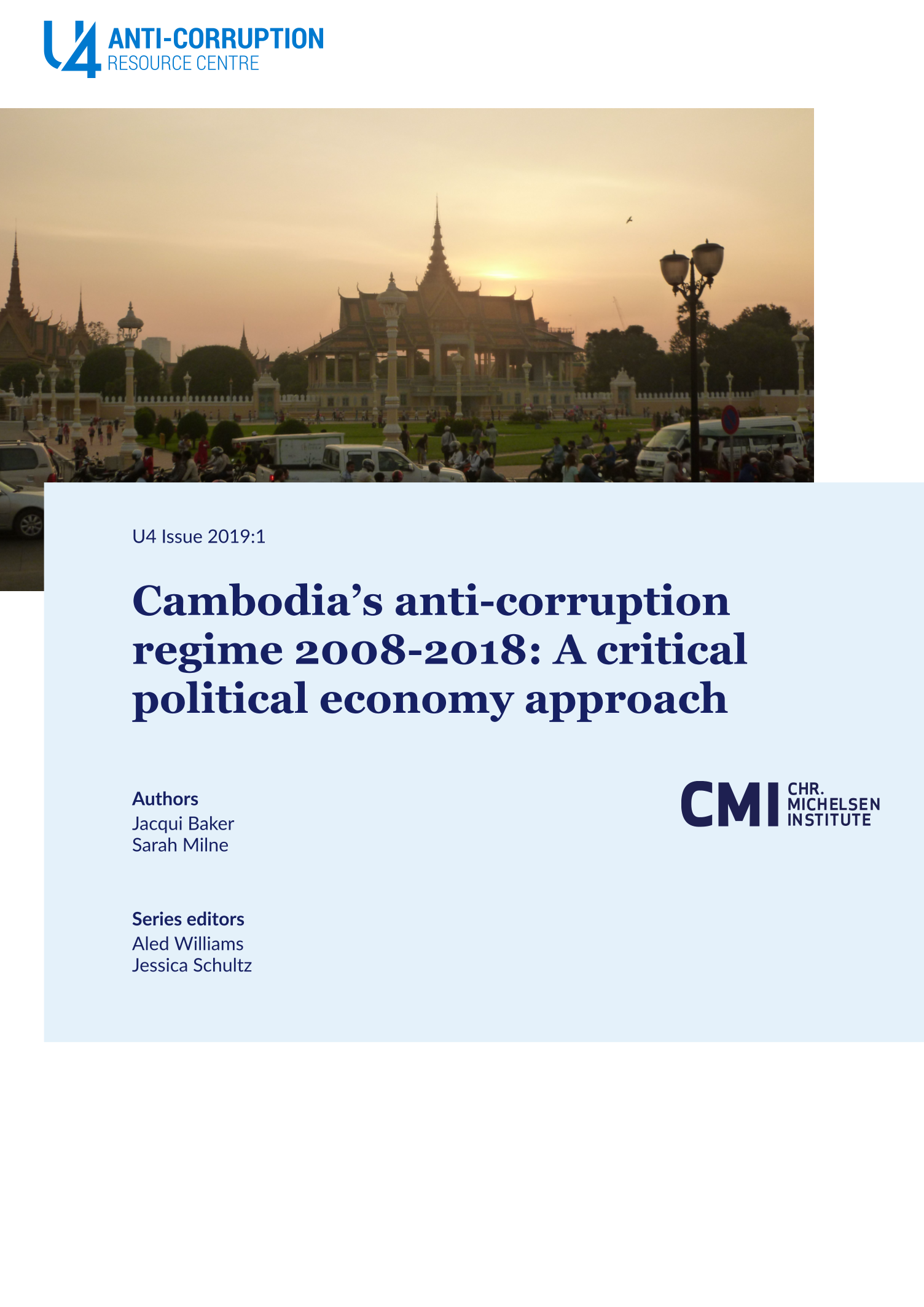Main points
- A number of anti-corruption initiatives have been successfully implemented in Cambodia in the face of increasingly authoritarian rule on the part of the Cambodian People’s Party.
- Cambodia’s anti-corruption reforms are fundamentally liberal rather than democratic in orientation, which implies regime-friendly and selective implementation.
- Liberal anti-corruption reforms such as public finance management reform, public expenditure tracking surveys and decentralisation reform, effectively deepen Cambodia’s market capitalism and provide ways for the neopatrimonial state to rationalise and reorganise the shadow economy, and consolidate power relations.
- Arresting current reform dynamics would require a reorganisation and reconsolidation of Cambodia’s anti-corruption coalition.
- Strategies for deepening Cambodia’s anti-corruption reforms need to distinguish more rigorously between liberal and democratic notions of accountability and be clear-eyed about exactly how interventions will deliver democratic dividends.

